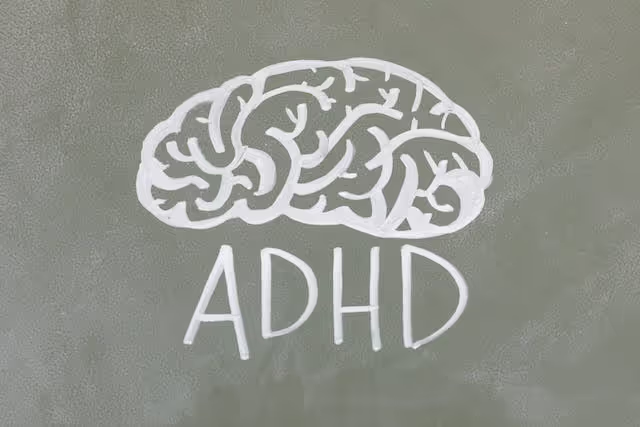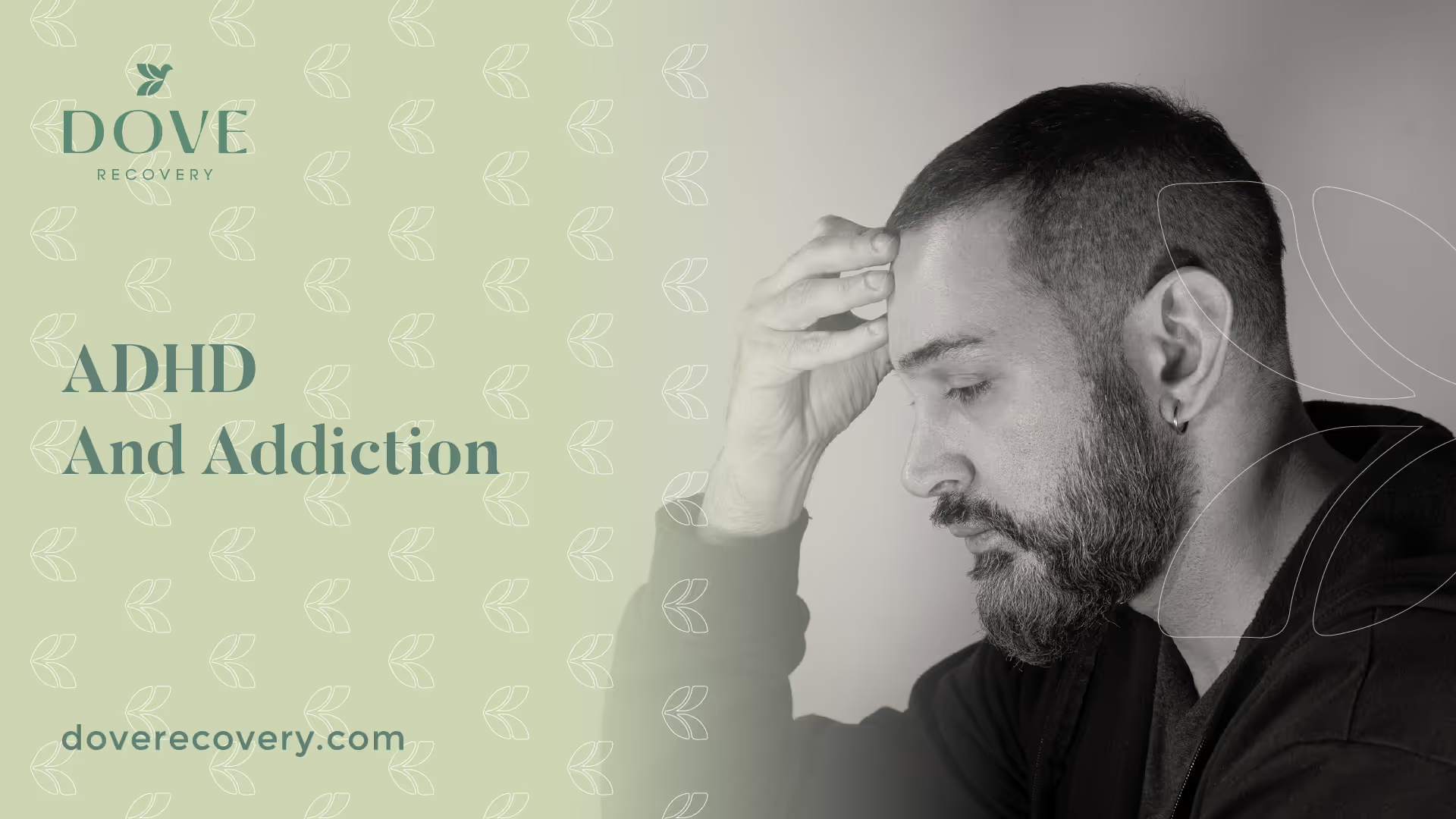ADHD And Addiction

Understanding ADHD
ADHD, which stands for Attention Deficit Hyperactivity Disorder, is a neurodevelopmental disorder that affects both children and adults. It is characterized by persistent patterns of inattention, hyperactivity, and impulsivity that can interfere with daily functioning. Understanding ADHD is crucial in comprehending its association with addiction.

What is ADHD?
ADHD is a complex disorder that affects the brain's executive functions, which are responsible for tasks such as attention, impulse control, and decision-making. Individuals with ADHD often struggle with maintaining focus, organizing tasks, and regulating their behavior.
There are three main types of ADHD:
- Predominantly Inattentive Presentation: Individuals with this type of ADHD find it challenging to pay attention, follow instructions, and complete tasks. They may appear forgetful and easily distracted.
- Predominantly Hyperactive-Impulsive Presentation: This type is characterized by excessive physical activity, restlessness, and difficulty staying seated. Impulsivity is also a prominent feature, leading to hasty decisions and impulsive behavior.
- Combined Presentation: This is the most common type of ADHD, where individuals exhibit symptoms of both inattention and hyperactivity-impulsivity.
Common Symptoms of ADHD
The symptoms of ADHD can vary from person to person, but common signs may include:
- Inattention and difficulty staying focused on tasks or conversations.
- Hyperactivity and restlessness, such as constant fidgeting or difficulty sitting still.
- Impulsivity, leading to impulsive decision-making or interrupting others.
- Forgetfulness and difficulty organizing tasks or completing assignments.
- Difficulty following instructions and staying on track with responsibilities.
It's important to note that ADHD symptoms may manifest differently in children and adults. While children with ADHD may exhibit more hyperactive and impulsive behaviors, adults often experience difficulties with attention, organization, and time management.
Prevalence and Diagnosis
ADHD is a relatively common condition, with estimates suggesting that it affects around 5-10% of children and 2-5% of adults worldwide. It is diagnosed more frequently in males than females, although this may be due to differences in symptom presentation and diagnostic biases.
Diagnosing ADHD involves a comprehensive evaluation by a qualified healthcare professional, typically a psychiatrist or psychologist. The diagnostic process includes gathering information about the individual's symptoms, medical history, and assessing their daily functioning. The criteria for diagnosing ADHD are outlined in the Diagnostic and Statistical Manual of Mental Disorders (DSM-5).
Understanding the nature of ADHD and its symptoms is crucial in recognizing its impact on individuals and their susceptibility to addiction. In the following sections, we will explore the association between ADHD and addiction, as well as its implications for treatment and recovery.
The Link Between ADHD and Addiction
ADHD (Attention-Deficit/Hyperactivity Disorder) and addiction often go hand in hand, with individuals diagnosed with ADHD being at a higher risk for developing addiction. Understanding the association between ADHD and addiction is crucial in order to provide effective treatment and support for those affected.
Exploring the Association
There is a well-established association between ADHD and addiction, with research consistently showing a higher prevalence of addiction among individuals with ADHD compared to the general population. Studies have found that individuals with ADHD are more likely to engage in substance abuse and develop addiction. This link applies to various substances, including alcohol, drugs, and tobacco.
The association between ADHD and addiction can be attributed to several factors. One possible explanation is the self-medication hypothesis, which suggests that individuals with ADHD may turn to substance abuse as a way to alleviate their symptoms. The impulsivity and inattentiveness characteristic of ADHD can lead individuals to seek immediate relief, making them more susceptible to substance use as a means of self-regulation.
Another contributing factor is the overlap in brain mechanisms involved in both ADHD and addiction. The reward pathways and executive functioning systems in the brain are affected in individuals with ADHD, making them more vulnerable to the rewarding effects of substances and the development of addictive behaviors.
Potential Factors Contributing to the Link
Several potential factors contribute to the link between ADHD and addiction:
- Genetic Predisposition: There is evidence to suggest a genetic component to both ADHD and addiction. Certain genes may be involved in the development of both conditions, increasing the likelihood of co-occurrence.
- Impulsivity and Risk-Taking Behavior: Individuals with ADHD often exhibit impulsive behavior and engage in risk-taking activities. This impulsivity may contribute to experimenting with substances and developing addiction.
- Poor Self-Regulation: Difficulties with self-regulation, such as managing emotions and controlling impulses, are common in individuals with ADHD. These challenges can make it harder to resist the allure of addictive substances.
- Mental Health Comorbidities: ADHD often coexists with other mental health disorders, such as anxiety and depression. The presence of these comorbidities can further increase the risk of substance abuse and addiction.
Understanding the link between ADHD and addiction is essential for healthcare professionals, individuals with ADHD, and their loved ones. Recognizing the increased vulnerability to addiction can help guide treatment approaches and interventions that address both conditions simultaneously.
ADHD, Substance Abuse, and Addiction
Individuals with ADHD are at a higher risk of developing substance abuse and addiction compared to those without the condition. Understanding the relationship between ADHD, substance abuse, and addiction is crucial for effective treatment and support.
Substance Abuse and ADHD
The connection between ADHD and substance abuse is complex. Individuals with ADHD may turn to substances as a way to cope with the challenges and symptoms associated with the condition. The temporary relief provided by substances can be appealing, as they may alleviate restlessness, impulsivity, and difficulty focusing.
Moreover, substance abuse can further exacerbate ADHD symptoms, making it even more challenging to manage daily life. This creates a vicious cycle where the individual relies on substances to self-medicate, leading to a higher risk of addiction.
Increased Risk of Addiction
The presence of ADHD significantly increases the risk of addiction. According to studies, individuals with ADHD are more likely to engage in substance abuse and develop addictive behaviors compared to those without ADHD. The exact reasons for this increased vulnerability are multifaceted and may include genetic, environmental, and neurobiological factors.
It's important to note that not all individuals with ADHD will develop addiction. However, the risk is significantly higher, and early intervention and support are crucial to mitigate this risk.
Impact on Treatment and Recovery
The presence of ADHD can complicate the treatment and recovery process for individuals struggling with addiction. The symptoms of ADHD, such as impulsivity and difficulty with organization, can hinder adherence to treatment plans and impede progress in recovery.
Addressing both ADHD and addiction simultaneously is essential for successful outcomes. Integrated treatment approaches that consider both conditions are effective in improving overall well-being. These approaches may involve a combination of behavioral therapies, medication management, and support groups.
Furthermore, the importance of dual diagnosis treatment cannot be overstated. Dual diagnosis treatment focuses on addressing both ADHD and addiction concurrently, recognizing the interplay between the two and tailoring treatment accordingly. This comprehensive approach provides individuals with the necessary tools and strategies to manage symptoms, cope with cravings, and maintain long-term recovery.
For those seeking support, there are resources available for individuals with ADHD and addiction. Support groups, counseling services, and specialized treatment centers offer assistance and guidance in managing both conditions. Seeking professional help is a crucial step towards understanding the unique challenges faced by individuals with ADHD and addiction and developing strategies for sustainable recovery.
By recognizing the association between ADHD, substance abuse, and addiction, we can better understand the complexities of these conditions and provide targeted support to those who need it most.
Shocking Statistics on ADHD and Addiction
When examining the relationship between ADHD and addiction, it becomes evident that there is a strong connection between the two. The following statistics shed light on the prevalence of ADHD in individuals with addiction, the increased risk of substance use disorders in individuals with ADHD, and the commonly abused substances by those with ADHD.
Prevalence of ADHD in Individuals with Addiction
Research has shown that there is a higher prevalence of ADHD among individuals with addiction compared to the general population. Approximately 25% to 40% of individuals seeking treatment for addiction also have a diagnosis of ADHD. This suggests a significant overlap between these two conditions. ADHD not only affects children but continues to be a factor in adulthood, potentially contributing to the development of addiction later in life.
Increased Risk of Substance Use Disorders in Individuals with ADHD
Individuals with ADHD are at an increased risk of developing substance use disorders compared to those without ADHD. Studies have found that up to 60% of individuals with ADHD may develop a substance use disorder at some point in their lives. This heightened risk can be attributed to various factors such as impulsivity, difficulty regulating emotions, and self-medication as a means to cope with ADHD symptoms.
Addressing ADHD and Addiction Together
When it comes to addressing the dual challenges of ADHD and addiction, it is crucial to adopt a comprehensive approach that considers both conditions simultaneously. Integrated treatment approaches, the importance of dual diagnosis treatment, and the availability of support and resources play a vital role in effectively managing ADHD and addiction.
Integrated Treatment Approaches
Integrated treatment approaches refer to the combination of therapies and interventions that target both ADHD and addiction concurrently. This approach recognizes the interconnected nature of these conditions and aims to address their underlying causes and symptoms collectively.
An integrated treatment plan may include a combination of behavioral therapies, such as cognitive-behavioral therapy (CBT) or dialectical behavior therapy (DBT), which can help individuals develop coping strategies for managing ADHD symptoms and addiction triggers. Additionally, medication management may be employed to address the symptoms of ADHD and any co-occurring mental health conditions that may contribute to addiction.
Importance of Dual Diagnosis Treatment
Dual diagnosis treatment is a specialized approach that focuses on individuals who have both ADHD and addiction. This treatment recognizes that these conditions often coexist and require a comprehensive assessment and tailored treatment plan.
Dual diagnosis treatment involves a multidisciplinary team of healthcare professionals who collaborate to address both ADHD and addiction simultaneously. This may include psychiatrists, therapists, addiction counselors, and support staff. The treatment plan may involve a combination of medications, therapy, support groups, and educational resources to help individuals manage their symptoms, navigate challenges, and develop healthier coping mechanisms.
Support and Resources for Individuals with ADHD and Addiction
Support and resources are essential for individuals facing the challenges of ADHD and addiction. Various organizations and support groups provide information, guidance, and community for individuals and their loved ones.
Support groups, such as those specifically designed for individuals with ADHD or addiction, offer a safe space to share experiences, learn from others, and gain support from peers who understand the unique challenges associated with these conditions. Additionally, organizations and online platforms provide educational materials, articles, and resources to help individuals and their families navigate the complexities of ADHD and addiction.
Remember, seeking professional help is crucial in addressing ADHD and addiction. If you or someone you know is struggling with these conditions, reach out to a healthcare professional or a treatment center that specializes in dual diagnosis. With the right support and treatment, individuals can manage their ADHD symptoms, overcome addiction, and lead fulfilling lives.
Conclusion
Integrated treatment approaches refer to the combination of therapies and interventions that target both ADHD and addiction concurrently. This approach recognizes the interconnected nature of these conditions and aims to address their underlying causes and symptoms collectively. An integrated treatment plan may include a combination of behavioral therapies, such as cognitive-behavioral therapy (CBT) or dialectical behavior therapy (DBT), which can help individuals develop coping strategies for managing ADHD symptoms and addiction triggers.
Additionally, medication management may be employed to address the symptoms of ADHD and any co-occurring mental health conditions that may contribute to addiction.
